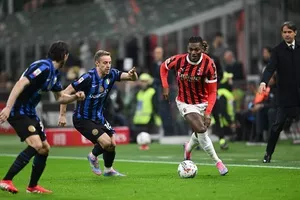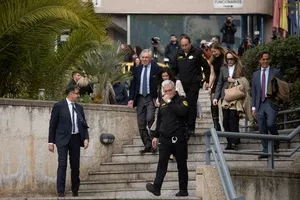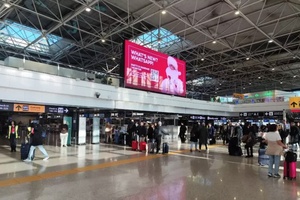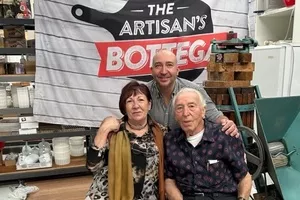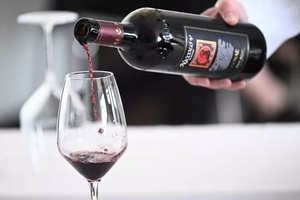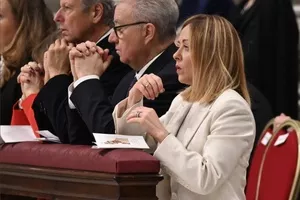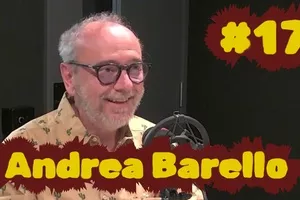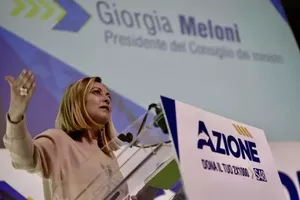“I don’t like the two major parties,” he says.
“Both of them have moved towards the left, losing sight of conservative values.”
The values and beliefs Philip’s grandfather, Filippo, brought to Australia when he migrated after World War I are reflected in the Shooters, Fishers and Farmers Party which Philip now represents in the Parliament of NSW as a Member for Orange.
During his inaugural speech in 2017, which marked the beginning of his political career, Donato gave his fellow MPs a taste of his candid nature.
“To be honest, this is not a speech I thought I would have the privilege of delivering,” he said during the speech.
“I had never dreamed of being in the position in which I now stand.
“An unexpected opportunity presented itself and I embraced it, welcoming a new challenge with great enthusiasm and optimism.”
Donato’s shock was due to the fact that he was the first Shooters Fishers and Farmers Party MP elected to the Lower House of any Parliament in Australia.
“But things change, and they’re still changing today,” he says.
“All you have to do is look at the results of the last election to see that we’re gaining more and more support.
“This is something the major parties have started to notice.
“In the past, rural areas were always overshadowed but now things are changing and talks have begun to include these regions as well.”
Donato draws a line between this recent development and his party’s entry into Parliament.
“We were the ones who shone a light on the situation and now the major parties are trying to be more competitive and regain ground,” Donato explains.
“This doesn’t worry me; rather, it’s an achievement for our party.
“By creating competition, you draw attention.
“Attention can only be a good thing for Orange and rural areas in general.”
Like many others, Filippo Donato migrated to Australia from the Sicilian city of Messina alone, leaving behind his pregnant wife.
He worked on sugarcane plantations in Queensland and eventually managed to save up enough money for his family to join him.
In 1938, the Donato name had officially been brought to Australia.
As the family continued to grow, the opportunity arose for Filippo to buy a farm and start growing his own produce.
In 1960, he opened the family’s first business, Donato & Sons.
“My Italian identity is rooted in that store,” Donato says.
“I’d spend hours with my grandparents, especially in the kitchen, where they’d preserve fruit and vegetables.
“This is just one of the traditions we still carry on today.”
Despite having strong ties to his Italian heritage, Donato admits he doesn’t speak his grandparents’ mother tongue.
“I can understand it well enough, but I don’t speak it,” he says.
“I’d still like to learn it now, but at the time my grandfather thought it was important to speak English so that the family could communicate with clients.”
An Italian word here or there has remained within the family, however, including expressions caught in conversation on the mornings they went to the market with their grandfather.
“There were lots of Italians at the market,” Donato recounts.
“But more than the language, I remember devouring fresh panini with salami at 4:00 am.”
Then there were the hunting trips with his father and uncle, and Donato’s relationship with his cousins.
“I remember the Italian world and its strong family values,” he continues.
“Long lunches, Sundays spent at relatives’ houses, the joy of sharing moments together.
“Those experiences represent how my Italian heritage has influenced me the most.”
Rather than follow in his family’s footsteps, Donato pursued a career outside of the commercial world.
Following high school, he commenced university studies but soon realised that university was not the right fit for him.
He eventually dropped out of his course and worked to make ends meet before becoming a part of the NSW Police Force.
After around 20 years in uniform, Donato decided to enter the world of politics.
“Politics has always had a flaw: its short-sightedness with regards to regions away from major cities and urban centres, which are often inexhaustible reservoirs of votes,” he explains.
“Things taken for granted in cities, such as the efficiency and complexity of public transport networks, are battles which we must conquer here ... but we won’t back down.
“I know it’s impossible to achieve everything overnight; it will take time to make up for years of isolation.”
Donato then mentions the investments the NSW government plans to make in the establishment or improvement of infrastructure.
“Legally, 30 per cent of investments should be directed to rural areas,” he says.
“But at the moment, NSW is breaching those rules; it has set aside less than 19 per cent of the budget for our areas.
“And that percentage was even lower before I was elected to Parliament.”
Often, the money allocated to rural areas is only accessible after a long period of time.
“It won’t be until sometime [this] year that residents will be able to enjoy the fruits of my party’s labour and efforts since 2017, when I became MP,” Donato says.
Donato’s main focus is on reducing inequality between cities and rural areas.
“The gap is still too big,” he declares.
“We still pay taxes just like those in urban areas and we contribute significantly to the country’s economy.
“We deserve more ... we know it and so do the citizens who no longer want to be represented by slack politicians who take for granted the fact that they’ll get elected.”
Another topic touched on was the current bushfire crisis, in particular whether the recent fires are related to climate change.
“I don’t believe there’s any correlation at all,” Donato says.
“The climate has been constantly changing for thousands of years, and the problem of bushfires has always existed.
“You just have to look at the news to see they’re caused by humans.
“The NSW government needs to do more to combat this phenomenon, supporting a policy of cleaning green areas, farms and parks, and investing more funds towards fire services.
“We need far more helicopters to support their efforts.
“Above all, we need harsher punishments for those who start fires.”
While Donato knows there’s much more to be done, he’s optimistic for the future of rural areas, particularly Orange.
“In the future, Orange will be a large, multicultural city that will see exponential growth in its infrastructure,” he says.
“It will experience a demographic boom, attracting people who can no longer afford to live in the city or who are seeking tranquillity, security and a healthy environment.
“Today, the Charles Sturt University is expanding significantly, as are many local companies.
“We have to create infrastructure to support the proliferation of new opportunities.”
In the near future, there’s one thing Donato would like to establish in his region: a palliative care house.
“While these things may be taken for granted in the city, there’s a demand for them in rural areas,” he concludes.
“We need them to guarantee equal dignity.”


















